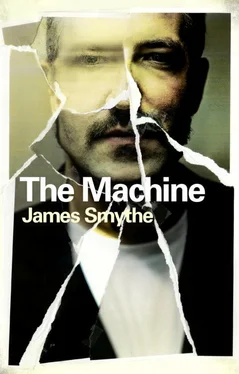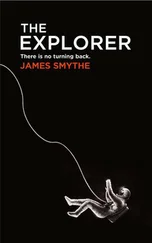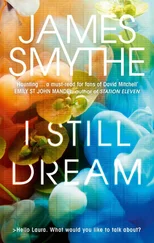1 ...7 8 9 11 12 13 ...61 At the weekend, one week closer to the end of term, she visits Vic. She packs a bag before she leaves the house, taking biscuits with her, and some of his clothes, pulled out of the vacuum-packed plastic bags where they’ve been lingering. The walk to the ferry terminal takes her along the coastline, because she goes out of her way to stick to it. It’s infuriatingly hot, even this early in the morning. She peels off her sweater and stuffs it into her bag. From the sea, there’s a wind, but it barely registers against the heat. She remembers when this was a rarity: when weather like this would have brought the tourists flooding here, and the beaches below where she was walking now would have been crammed. The promenade leading to the terminal is almost deserted. People walking their dogs on the beaches, letting them leap into the waves; some elderly couples sitting in chairs outside the coffee shop. Everybody else is still in bed.
The ferry ride itself is amazing. She calls it a ferry: it’s a catamaran, and she stands on the deck and, for a few minutes, it’s almost cold. The wind up there, caused by the speed, is biting. She doesn’t put her sweater back on, because she wants to feel it. She knows how fleeting it will be. Even as the boat starts to slow she goes inside and rubs a thin layer of suntan lotion onto the back of her neck. They say, on the news, that everybody will get used to the sun eventually. Children born now won’t burn nearly as easily. We’ll be like they used to be in the south of Europe: naturally tanned. Beth isn’t there yet. She rubs the lotion on and then pockets the bottle, in case she needs it later. The ferry docks into what’s left of Portsmouth harbour, and they all leave.
She remembers how Portsmouth used to be, back when the Navy was still here, before the collapse of the cliffs and before the flooding of Old Portsmouth. They dredged it, of course, once the waters rolled back a bit, but the damage was done. It’s something that people rarely appreciate until it happens: the sense of safety, of not needing to blockade. She thinks about how easily people now put up walls here, after they’ve been through it. The shops she passes have small steps to enter them and trenches dug along the roadside gutters. Everything seems to have been elevated a few feet. This part of the city, when it was constructed, floated on the water, and there are still the remnants of the parts that were lost when the flood came: the offices that were wrenched away from their moorings, somehow, and collapsed into the sea, toppling onto boats, the masts tearing through the windows and spilling out the guts of the desks and computers and people inside. Even now, that part of the city is bypassed and cordoned off, despite it being years since it happened. Still, in the water, you can see the computers and ruined chairs from the offices under the water, sitting far below the docks.
From here Beth enters the station, where her train is waiting, and she finds a seat and stares out of the window. She’s become accustomed to not doing anything on these journeys, because she finds herself too distracted. On the occasions she tried to read a book, she had forgotten about whole characters by the time she boarded her return train. It wasn’t worth it in the end.
After the train she fights through Victoria station, and to the underground. The tube is filled with stale air, recycled a seemingly infinite amount of times, pumped out in what is claimed to be cold air, but only tastes cold, somehow, and is still warm at its core. She can tell as she walks through the stations: how out of breath she gets just fighting her way to the escalators. Everybody around Beth sweats. By the time she reaches Richmond it’s a relief, even just to step out onto the high street. It’s busy already, but she turns away from the shops and towards where it looks more residential. Three turnings away and over the bridge and past the little shops and she’s there.
The sign in the front garden proclaims it to be a CENTRE, though Beth knows different. It’s a hospice, really. She would argue that the patients are all terminal, because they’re like this until they die. Any chance of them being treated by this new technique is slim to none; if they’re the right patient, and if the company decides that the technology is up to it, then maybe. Probably not, though. Saturdays are visiting days, and she has to sign in. She has to show ID and be scanned, so she places her bag on the table and stands where she’s meant to and lets them check she’s not dangerous. She has no idea why anybody would want to bring a weapon into this place. The school, that’s a risk. Once a year the news rings out with another story about somebody murdering their classmates. Nobody ever murders the handicapped and dying.
In the hospice itself, Beth knows the way to Vic’s room. There are coloured lines on the floor to lead visitors. Green to the gardens; black to the storeroom in the eaves, where they keep old Machines, in case they should ever need them; sandy yellow to the private rooms. Beth follows this last line up the stairs and to the left. She pays for a room of his own, where so many of them are in larger wards, four or six to a room, divided only by thin cotton curtains. There’s an argument among the families of those in here that private rooms are unfair, because not everybody can afford the subsidies. They’re all in the same boat, goes the argument; and besides, they don’t know any different. She pays the subsidy, despite the rising prices, because it gives them privacy.
When he’s back to being himself, Beth thinks, he’ll appreciate that I did it. What it gave him. That space to be alone, and to be himself.
Vic’s room is the same colour as the rest of the hospice. A thin grey paint, a white dado rail, a white skirting. The furniture is hospital standard, with a white wire-frame bed locked to the wall and a table that’s high enough to be wheeled over the bed – and over Vic – and a chair in the corner of the room, a soft thing that’s low to the ground, impractical to sit in. There’s a television (an old-style set, with the bulbous behind and curved screen) on a stand on the wall opposite the bed as well. It made Beth laugh, the first time she saw it. When they brought her into the room, to tell her that this would be where he was staying, and they pointed it out. She asked them if it would be part of his rehabilitation, watching EastEnders . They ignored her. She found out later that the building used to be an old people’s home, and they simply moved them out and moved the new patients in. In the corner are Vic’s personal accoutrements: his monitor, his spare colostomy bag, a collection of kidney-shaped metal trays stacked up like saucepans. There’s a bowl of fruit, but it’s token, and often the fruit is gone, well past its date. On the wall above the bed, looking directly down at Vic is a security camera, a tiny ball that affords somebody a 360-degree view of the room. A direct line to see and hear whatever Vic is doing at any given point in the day.
Here, Vic is on the bed, shitting himself.
Here, Vic is writhing, managing to push himself onto the floor, his tongue lolling from his mouth.
Here, Vic is in the corner, because he walked of his own accord, which should be a near-miracle, and celebrated, but now he’s just standing there and gasping as he faces the walls, heaving his body up and down, his shoulders halfway to a convulsion. Over and over and over again.
Beth always worries what state she’ll find him in. She’s sometimes been here when there’s been an accident, and she’s seen it before the carers have had a chance to deal with it, but that’s a hazard of their jobs, she thinks. The carers and hers. Even with those paying guests, the clinic is understaffed and underserviced. She could complain, but they’ve got heading on for a hundred other patients here, and they’re all in similar boats. Some are better, admittedly: many of them have kept their day-to-day routine, and they can take themselves to the toilet and feed themselves. Some of them might as well be in a coma for all they’re worth. Lying there, calm as anything, barely cognitive when visitors come. Vic is special to the clinic. He’s a worst case: not just far less able than the man he once was, but totally out of control of the man he’s become. Beth’s never seen anybody worse, not in the flesh.
Читать дальше
Конец ознакомительного отрывка
Купить книгу










